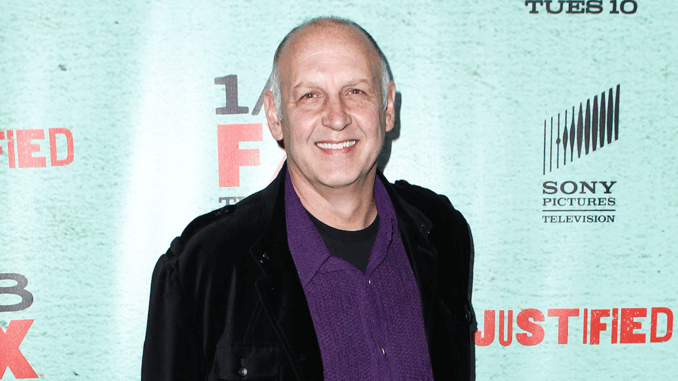
The Shadow That Falls Over Whistle Stop
In the heart of Fried Green Tomatoes, amid the tender moments and emotional awakenings, lies a chilling, mysterious event that disrupts the otherwise close-knit fabric of Whistle Stop: the sudden disappearance of Frank Bennett.
Frank, Ruth’s abusive husband, returns to reclaim his son—only to vanish without a trace. While the official story remains foggy, the audience, and the town, know what truly happened. This scene—though shrouded in ambiguity and black humor—touches on powerful themes of justice, survival, and community loyalty.
It’s not merely a subplot. It is the film’s moral reckoning. And it speaks volumes about who these characters are, and what they are willing to do for each other.
Frank Bennett: The Threat That Returns
Frank Bennett is introduced through Ruth’s quiet terror. Her letter to Idgie is a veiled cry for help, suggesting what the audience later sees confirmed: he is violent, controlling, and dangerous.
When he shows up in Whistle Stop, the contrast is immediate. He’s a brute among gentle people. In a town that thrives on connection and respect, Frank is an outsider—not just geographically, but morally.
He comes to take his child, but the moment he lays hands on the boy, Sipsey steps in. Without hesitation, she strikes him down—with a cast iron skillet.
It is sudden, decisive, and irrevocable.
Sipsey’s Act of Love and Protection
Sipsey, played with quiet brilliance by Cicely Tyson, is not often at the center of the action. She is a background figure, a caregiver, a kitchen presence. But in this moment, she becomes something more: a protector, a moral compass, and a symbol of maternal justice.
Her act isn’t born of hate—it’s born of necessity. She kills Frank to protect the child, her chosen family, and the fragile peace they’ve built.
In the racial and social context of the 1930s American South, Sipsey’s action is even more dangerous. A Black woman killing a white man could have meant execution, with or without trial. She knows this. Everyone does.
And yet, she does not hesitate.
The Cover-Up: A Web of Loyalty

What follows is a community’s act of silent rebellion. Idgie and Big George—each risking their lives and reputations—dispose of the body. The story of Frank Bennett’s disappearance becomes a ghost tale, a whispered rumor.
The barbecue joke, while laced with dark humor, reveals something deeper: in Whistle Stop, justice doesn’t always come from the law. Sometimes, it comes from people who love each other enough to protect what matters most.
The sheriff comes sniffing. Investigations are hinted at. But no one talks. No one breaks the circle.
This silence is not cowardice. It is resistance. It is solidarity.
Barbecue and the Southern Gothic Tone
One of the most memorable, twisted moments of the film comes when it’s suggested that Frank’s body was cooked in the café’s barbecue and served to the sheriff. The line, “That’s right. The secret’s in the sauce,” is delivered with a wry smile—and leaves a permanent impression.
It’s grotesque. It’s hilarious. It’s deeply Southern Gothic.
But it’s also metaphor. It suggests that beneath the sweetness and warmth of Southern hospitality lies a fierce, unspoken code: hurt one of ours, and we will find a way to deal with you—even if it means breaking the rules of civilization.
This moment shifts the tone of the movie into something darker, more complex. It challenges viewers to ask: what is justice, really? And who gets to decide?
Idgie’s Role: Shielding the People She Loves
Though Sipsey delivers the fatal blow, Idgie takes responsibility for what follows. She disposes of the body. She faces the sheriff with calm lies. She plants a false trail. She does everything in her power to shield the people who cannot shield themselves.
This is Idgie at her core—not just a rebel, not just a friend—but a fierce, loyal protector.
She understands the stakes. And still, she moves forward, unflinching.
Her actions in this moment solidify her status as one of the most compelling female protagonists in film: morally gray, emotionally driven, and unapologetically brave.
Ninny’s Storytelling: Truth Wrapped in Allegory
In the present-day frame of the movie, Ninny Threadgoode tells this story to Evelyn in pieces. She’s cagey, cryptic, and playful. She never directly says that Frank was murdered—or that he became barbecue.
And that ambiguity is the genius of her storytelling.
For Evelyn, the story becomes a myth of empowerment. For the audience, it becomes a riddle. And for the characters in the past, it becomes legend.
It’s the kind of tale that towns carry for generations: a warning, a secret, a point of pride.
Themes of Justice vs. Legality
Frank’s disappearance forces viewers to confront the uncomfortable gap between law and justice.
Legally, Sipsey committed a crime. Idgie and Big George are accessories. But morally? They protected a child from a violent man who had already abused his wife and was poised to harm again.
In a world where women are not protected, where Black families are endangered by white violence, and where the legal system is broken by racism and patriarchy, community justice becomes a necessity.
The disappearance of Frank Bennett is a moral act masquerading as a crime.
A Bond Forged in Silence
Perhaps the most beautiful part of this dark story is what it reveals about community. Sipsey, Idgie, Big George, Ruth—they are not bound by blood or law. They are bound by choice, by love, and by shared values.
Their silence is not passive. It is an active vow.
They will protect one another. They will lie, cook, bury, and forget—together.
And in that silence lies a deeper truth: chosen family can sometimes be the most powerful force of all.
Conclusion: Disappearance as Transformation
Frank Bennett’s disappearance is not just the vanishing of a man. It is the disappearance of fear. The disappearance of power imbalance. The disappearance of helplessness.
In its place, a new kind of order rises in Whistle Stop—one ruled by loyalty, love, and quiet, unshakable justice.
This scene leaves us with questions, not answers. But in its silence, it speaks loudly. About what it means to love someone fiercely. About what we’re willing to risk for what’s right. And about how sometimes, the most profound truths are buried not in the ground—but in the stories we dare to tell.
